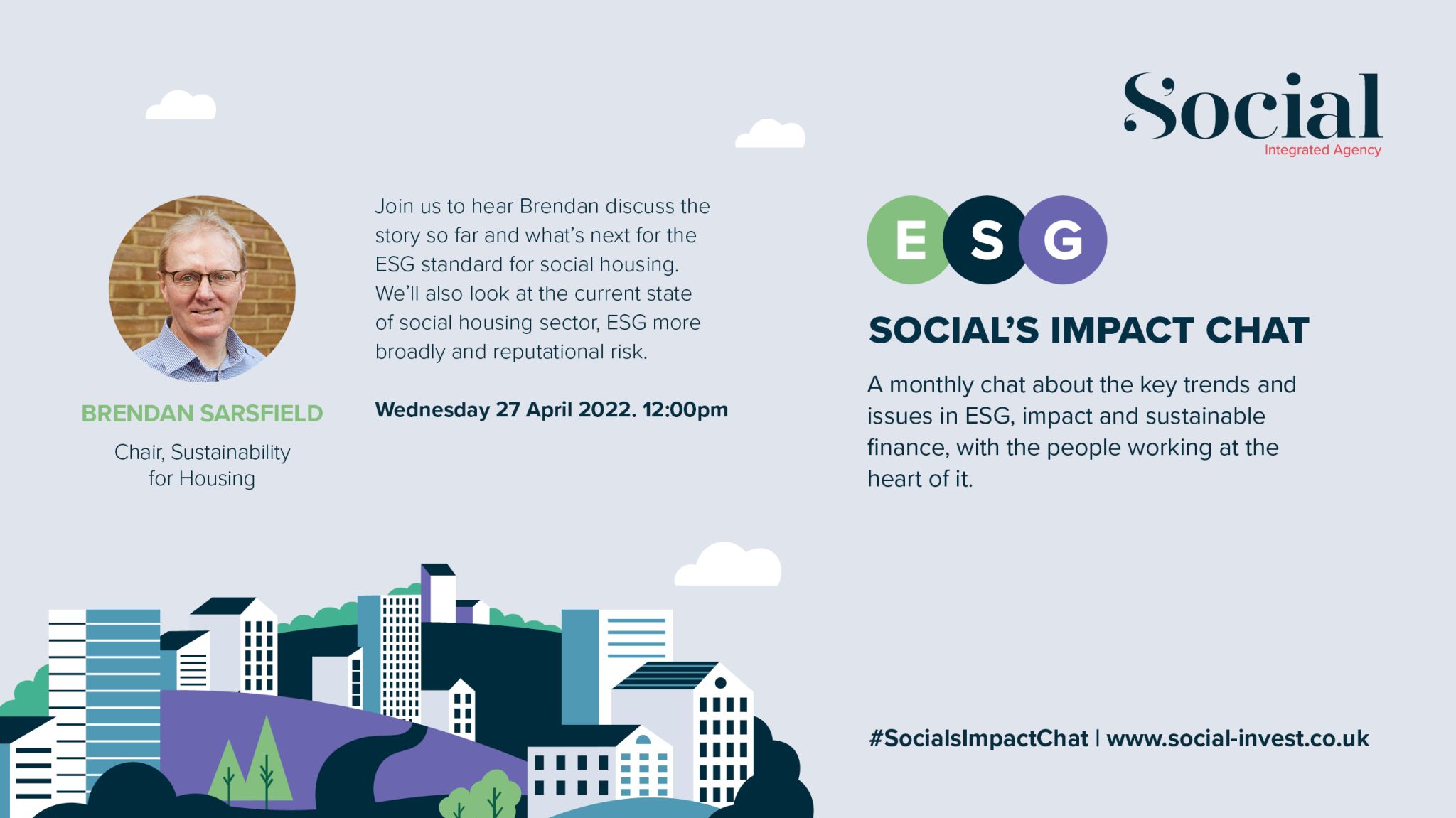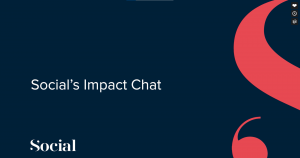For our first Impact Chat, Luke Cross, Social Invest Director spoke to Brendan Sarsfield, Former housing association CEO and now chair of Sustainability for Housing about a range of issues.
Below are five takeaways that are worth highlighting.
The housing sector is experiencing a ‘significant moment’
Brendan Sarsfield says the world changed for social landlords on the day of the Grenfell Tower fire. The disaster brought landlords’ responsibilities to the fore and the sector has been coming to terms with this ever since.
The building safety crisis uncovered by Grenfell has coincided with net zero demands which has compounded financial pressures on housing associations.
Cost of living crisis heaping pressure on tenants
A more recent pressure on the sector, Brendan notes, is the cost of living crisis.
“Our residents are getting poorer,” he says and suggests that difficult choices lay ahead for social housing providers who may have to prioritise investment in improving energy efficiency of existing stock to combat fuel poverty.
This is particularly true in a post-covid world where people are using their homes in different ways, often spending more time in them.
The sector must get better at communicating what it does
The Impact Chat touched on the negative stories about social housing providers in the media.
Brendan says there is a need to rebuild trust with tenants and that going forward ‘co-production’ will be important. This means involving tenants in discussions and decision making.
In particular, he sees the net zero challenge as a key area to collaborate with tenants.
Brendan says it is right that examples of the sector’s weaknesses have been exposed but suggests the sector could be more proactive in explaining the context of the system it works within, and the good work it does.
ESG reporting will evolve
Brendan sees ESG reporting as a key way the sector can communicate the good work it does, and the ways it can improve.
As chair of Sustainability for Housing, Brendan leads the board that stewards the Sustainability Reporting Standard (SRS) for Social Housing. This standard has been successful so far, but it will continue to evolve and grow, he says.
Over time Brendan expects to see the SRS move from an ESG-focused standard to a wider impact reporting standard. He suggests the sector has a 3-year horizon to move from reporting of process and strategy to impact.
Making ESG relevant to residents
He says he would like to see HAs producing one report intended for all stakeholders. “You don’t need different stories for different stakeholders,” he says.
This will require being open about what improvements need to be made. This openness should strike a chord with residents in particular.
HAs should also try to articulate the ‘E’ ‘S’ and ‘G’ issues through a more holistic lens would also benefit organisations.



